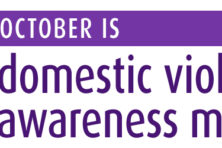The Never-ending Journey
- Share
- Tweet
- Pin
- Share

* Trigger warning: talk of depression and suicide
It feels like a smoke that seeps into my brain and weaves its way through all the cracks and crevices, clouding all judgement. Clouding all rational thought. My mind goes fuzzy and I can break at any time.
This is an excerpt from the first entry of a journal I started in December of 2017. At that point, I had been seeing a counselor for stress and anxiety management since October. But my mental health took a turn for the worse near the end of the year.
I didn’t want to acknowledge I was feeling worse; I didn’t want to tell my mom; and I didn’t want to see my counselor more than I already was. What I was feeling was just a hormone imbalance. I was just in a bad mood. I have lots of friends who struggle through mental-health problems, and mine are nothing in comparison to theirs.
These were all of the excuses I used to ignore the growing sense of darkness and dread inside me. However, after a particularly horrible night of battling my own mind, I reached out to my mother. That was the start of my never-ending mental-health journey.
My story is not unique. During May, we celebrate and encourage those with stories like mine and remember those who succumbed to their struggles. May is Mental Health Awareness Month.
I am nervous/anxious now to be in crowds, because I feel like the odd one out and that everyone can tell or knows that my feelings are “down.”
I never expected to write about my mental-health journey for a public audience, but this year I felt the need to use my experience to talk about something that is so important to me.
First off, there is nothing wrong with feeling the way you do. You are not alone.
According to Out of the Darkness, a program of the American Foundation for Suicide Prevention, “25 million Americans suffer from depression every year. Over 50 percent of all people who die by suicide suffer from major depression. If one includes alcoholics who are depressed, this figure rises to over 75 percent. Depression affects nearly 5 to 8 percent of Americans ages 18 and over in a given year.”
I heard about Project Semicolon sometime during college, I believe. It was the topic of an article I came across online and thought it was a great message. At that time in my life, I didn’t really admit to myself that there was something going on inside of me, so I brushed past it as a nice story and continued on with my life.
When I started my own journey, I was immediately brought back to this organization and its powerful message.
I felt happy. I felt hope. I felt relief. These feelings have been missing from my life for over a month now, and I was excited to feel these things again!
Project Semicolon is an organization that is dedicated to the prevention of suicide. Its belief is that all suicides are preventable, with everyone playing an important role. The group raises public awareness, educates communities and equips people with the right tools to help prevent suicide.
The organization was founded by Amy Bleuel, a Green Bay native who had struggled with depression, suicide and self-harm since age eight. After struggling in the foster-care system and enduring the suicide of her own father, Bleuel found comfort and stability after meeting her husband. She started her own journey to recovery and wanted to make a difference in the lives of people who were also struggling.
When asked in a 2015 interview with The Mighty about choosing the semicolon, Bleuel said, “In literature, an author uses a semicolon to not end a sentence, but to continue on. We see it as, you are the author, and your life is the sentence. You’re choosing to keep going.”
To help raise public awareness about mental health and suicide, people draw or tattoo a semicolon on their body – including me. It reminds me every day to keep going, even though some days are hard. It is also a symbol to others that I am an ally during their journey.
I have made many strides in overcoming those feelings, but there is still a part of me that is nervous of regression – of something knocking me off my path and heading backwards.
Project Semicolon founder Amy Bleuel lost her own battle with depression in March of 2017. She was 31.
The most important thing I realized after I sought out help was that this is a journey that doesn’t end. You don’t go see a counselor once, get a semicolon tattoo or even write about your own experiences for your local newspaper and be miraculously cured. Awareness is only the first step. Education and action are what keep your story going.
The Project Semicolon website, projectsemicolon.com, is a great resource. It offers information about mental health and some common diagnoses, resources for those looking for help and an entire section on mental health for teens. With its resources and advocacy, Project Semicolon has helped more than 5.2 million people since 2013.
My name is Grace Johnson. I am living with a panic disorder, anxiety and depression. I don’t want your pity. I don’t want you to tiptoe around me when we see each other. These diagnoses don’t mean that I can’t do my job or have a successful future. My admitting to these problems doesn’t mean I’m cured. I still have hard days, but I keep moving forward.
If you are struggling with depression, please seek help. If you are battling suicidal thoughts, please call the National Suicide Prevention Lifeline, 1.800.273.8255. Please seek the help you deserve and join me on this never-ending journey.


